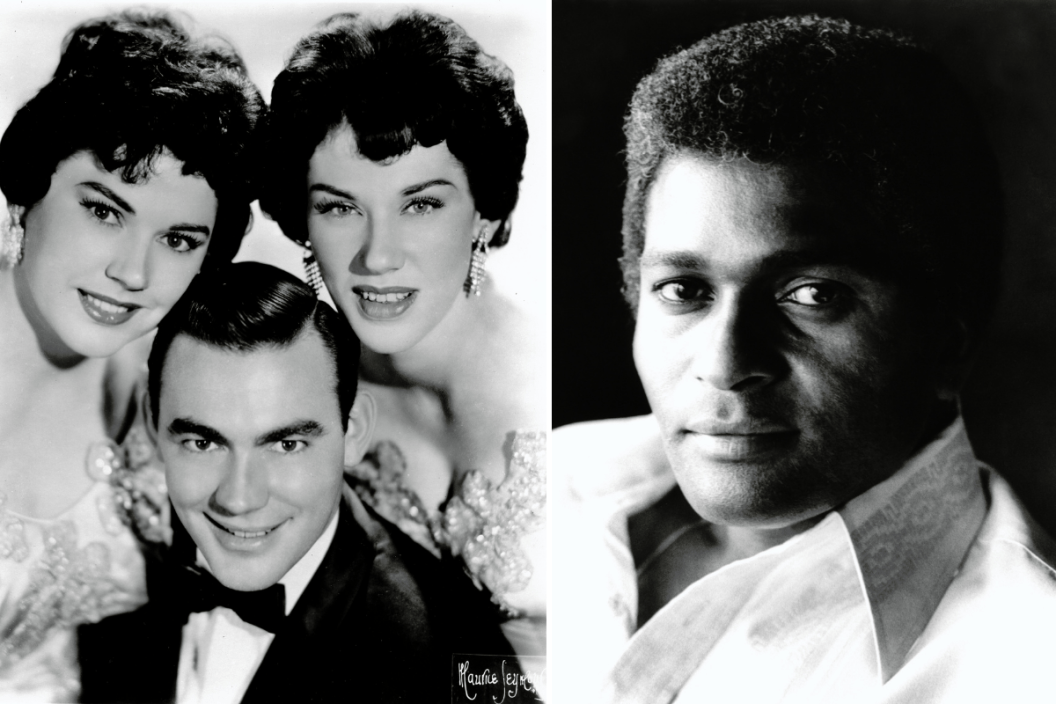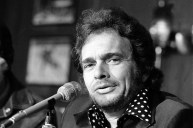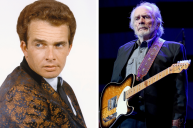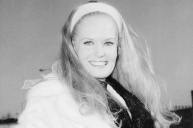"I'm a Lonesome Fugitive," which became Merle Haggard and The Strangers' first No. 1 hit, perfectly suited the catalog of a San Quentin inmate turned country troubadour. It's so Haggard (both the surname and the adjective) that some may not realize that a Nashville star from the same time period co-wrote the song that helped position a Bakersfield pioneer as a national treasure.
Liz Anderson, the mother of "Rose Garden" singer Lynn Anderson and a brilliant artist in her own right, wrote "I'm a Lonesome Fugitive" with her husband, Casey Anderson. The couple dreamed up the song while traveling cross-country, finding inspiration in popular TV series The Fugitive.
Haggard, a songwriting great who rarely needed help telling captivating stories about lawbreakers, instantly fell in love with "I'm a Lonesome Fugitive" when Anderson played it for him. He recorded it in 1966 for Capitol Records, continuing the momentum started with two Top 5 hits released earlier that year: "Swinging Doors" and "The Bottle Let Me Down."
Anderson recorded her own version for her stellar 1967 album Cookin' Up Hits. While the Haggard original remains emblematic of his sincere storytelling and foundational guitar picking (not to mention his wisdom in working with Roy Nichols and the rest of the Strangers), Anderson's Music Citified interpretation begins with a peppy chorus of backup singers that seems way out of place once the song reaches such lyrics as "Now I'm a hunted fugitive with just two ways/ Outrun the law or spend my life in jail."
As typically happened with the best country songs of the 1960s, "I'm a Lonesome Fugitive" got covered often in the coming years. Gorgeous sibling harmonies guide The Browns' stellar recording from 1967, making it an ideal entry point to the trio and member Jim Ed Brown's catalogs. Others to record the song in '67 include country giant (in greatness and stature) Jack Greene as well as Hearts and Flowers, a country-rock outfit featuring future Eagles member Bernie Leadon.
Before the end of the '60s, multiple rock 'n' roll pioneers (Gene Vincent, Jerry Lee Lewis) and additional country storytellers (Carl Smith, Tommy Cash) lent their voices to Anderson's story of a desperate drifter.
Though The Browns' version deserves praise as a seminal Haggard-via-Anderson cover, the song's finest hour outside of The Hag's discography may have come in 1970 when Charley Pride retold the fugitive's story with his smooth baritone delivery. Over 50 years later, it's more than a great deep cut from the album Just Plain Charley. It's concrete proof that Pride operated in the same storytelling stratosphere as Haggard himself.
This story was originally published on Nov. 17, 2021.




